Blog
SI 012: Have you slipped up yet?
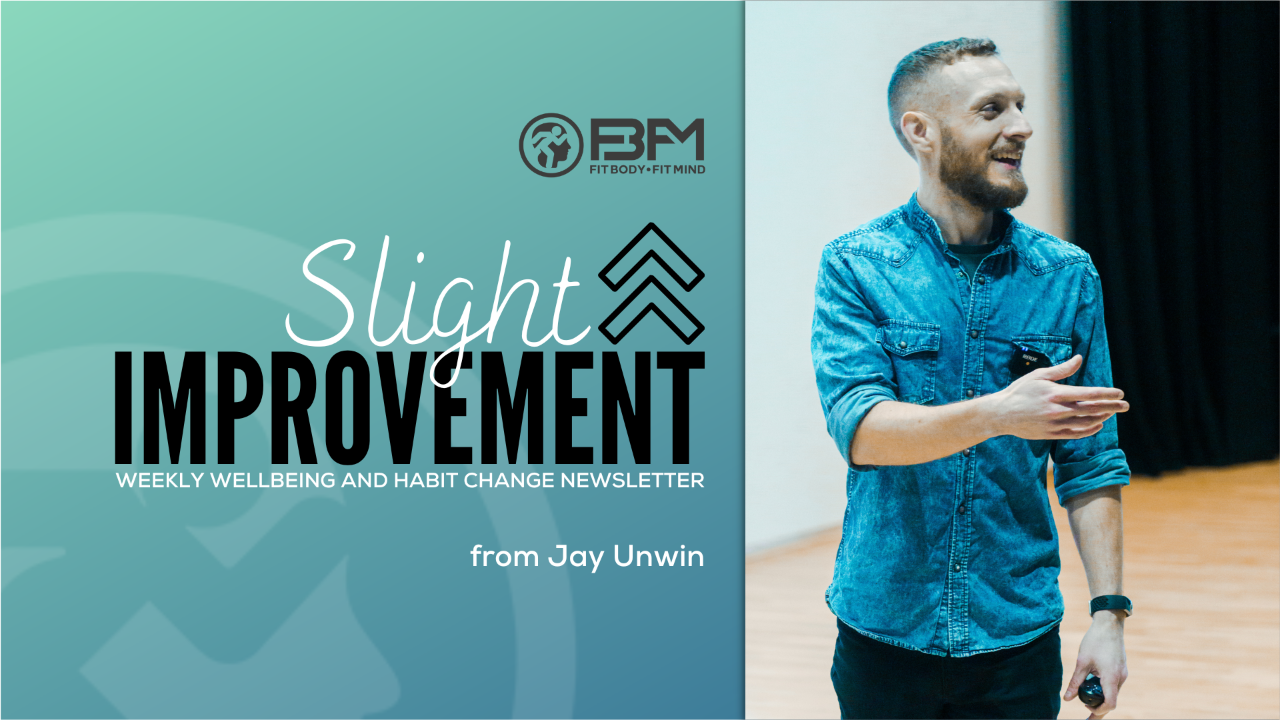
Happy New Year!
Okay, okay, I'm a bit late to the party on this one...
But January is a pretty hectic time for me, so getting going on new projects at the start of the year is not the best idea.
Jan 1st is a family day, to celebrate the New Year. I'm a bigger fan of NYD than NYE.
Jan 4th the kids went back to school, so before that date we're still wayyyy out of routine.
But then that week is only 3 days, and most of that is catching up with what I missed while offline for 2.5 weeks, plus finishing off my university coursework which was due in on Monday 9th and Thursday 12th.
The week after that was a write off, because it was my birthday on Tuesday 10th and then I was away in Bristol for a couple of days, so again no projects could be started in earnest.
But then I had two exams on Monday 16th and Thursday 19th, so I was in last-minute cram mode - and Saturday 21st was my youngest daughter's 8th birthday - no time for new projects.
And so it continues...
I'm just getting...
SI 011: Fitness is a personal journey

It's funny, isn't it, how often we end up following the paths of others because they appear to have achieved what we want?
Granted, we can learn from the successes of others, and what actions they took.
But the glaring problem is no two people are alike.
No two people have had the same experiences, have the same abilities, the same understanding, or the same circumstances.
We may attempt to emulate someone who is where we want to be, but unless we allow for flexibility and adaptability around our own needs, limitations and responsibility, we cannot hope to make progress.
Comparing ourselves to others is rarely a healthy thing to do, but it's nigh on impossible to quit completely.
My advice to you this week?
Try to have the self awareness to clock when you're comparing yourself to other people, and remind yourself that you're never comparing to the full picture.
And when you're looking to achieve goals similar to other people, look for the lessons but don't assume that you can...
SI 010: Progress over perfection
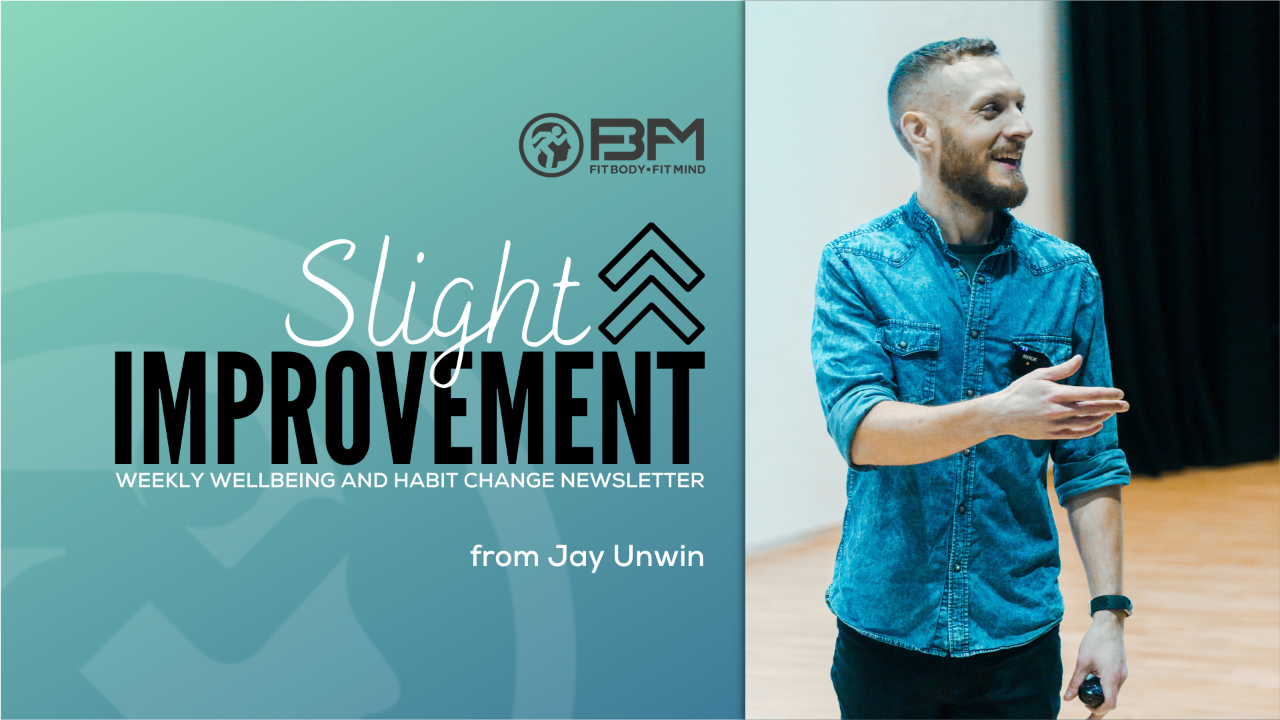
We humans are an odd bunch...
No matter how many times we are reminded that perfection is an unobtainable ideal, we still find ourselves in pursuit.
The result?
Frustration when it doesn't go our way.
Things happen which derail our plans, which pisses us off and we end up throwing in the towel.
In any endeavour, be it fitness and wellbeing, career, relationships, or anything else, the concept of perfection is a barrier between us and consistent progress.
If we focus in on making slight improvements instead... (wait, that would be a great name for a newsletter) ...we are far more likely to see ground being gained.
Think of it this way, which option is better:
1. A perfect on-paper plan, with a goal of perfection, which you can stick to for a maximum of about 4.5 days
2. An imperfect plan which only makes small changes, but you can maintain indefinitely
Which of those will lead to better results in the end?
Pretty obvious now, right?
An added bonus of the second...
SI 009: Riding the rollercoaster
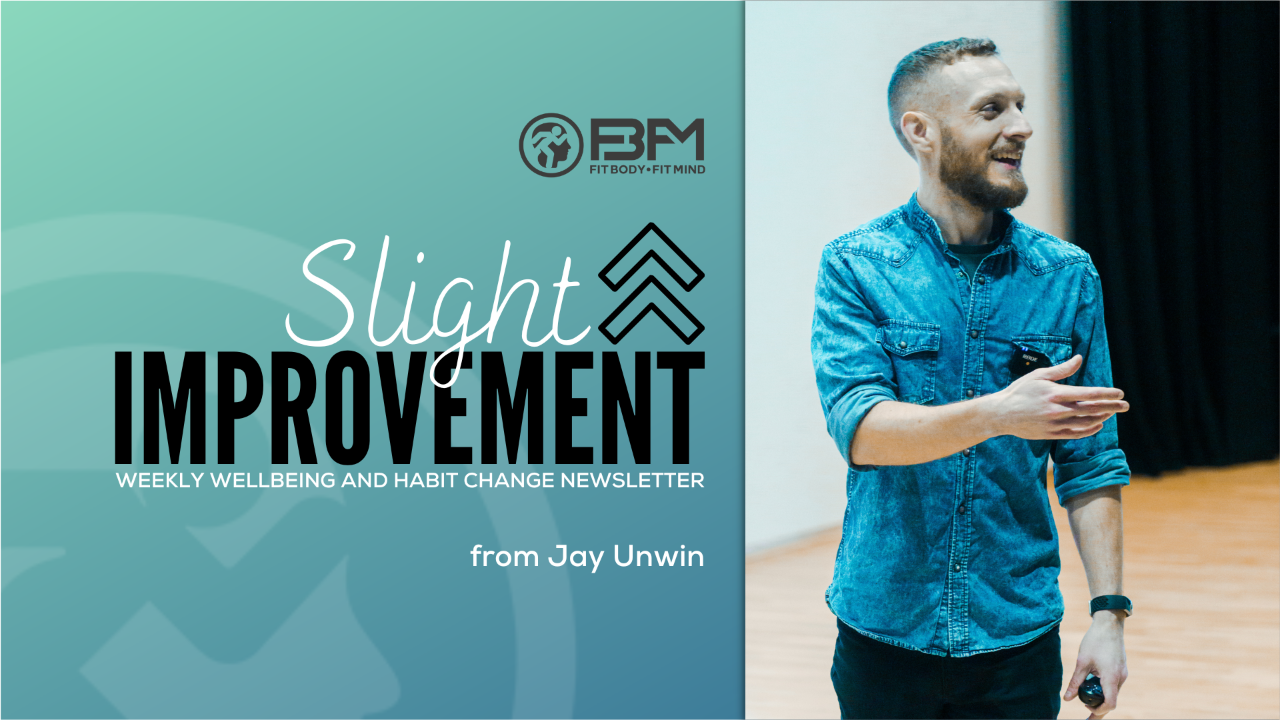
Perhaps we have fallen into a trap...
The trap of labelling any difficult emotion or low mood as being a 'mental health problem'.
Is it really?
Is feeling sad really a sign that you're unwell?
Should we strive for happiness in every moment?
There are two sides to this, and they act in a cyclical fashion - feeding off each other.
One is the constant promotion of happiness as being aspirational. The idea that we should feel joy and pleasure all the time, or at least as much as possible.
The other is the pathologising of low mood and so-called 'negative emotions' such as anger, envy, frustration, worry, and so on.
The more we believe one, the more we believe the other... on and on, ad infinitum.
This week I felt a range of these unpleasant emotions: low mood, despondency, frustration, worry, and more.
Does this mean I'm unwell?
It wasn't enjoyable, sure. But it doesn't mean something is broken.
It just means I'm a human being.
My concern around this is that more and more people are...
SI 006: Life changes, and priorities change
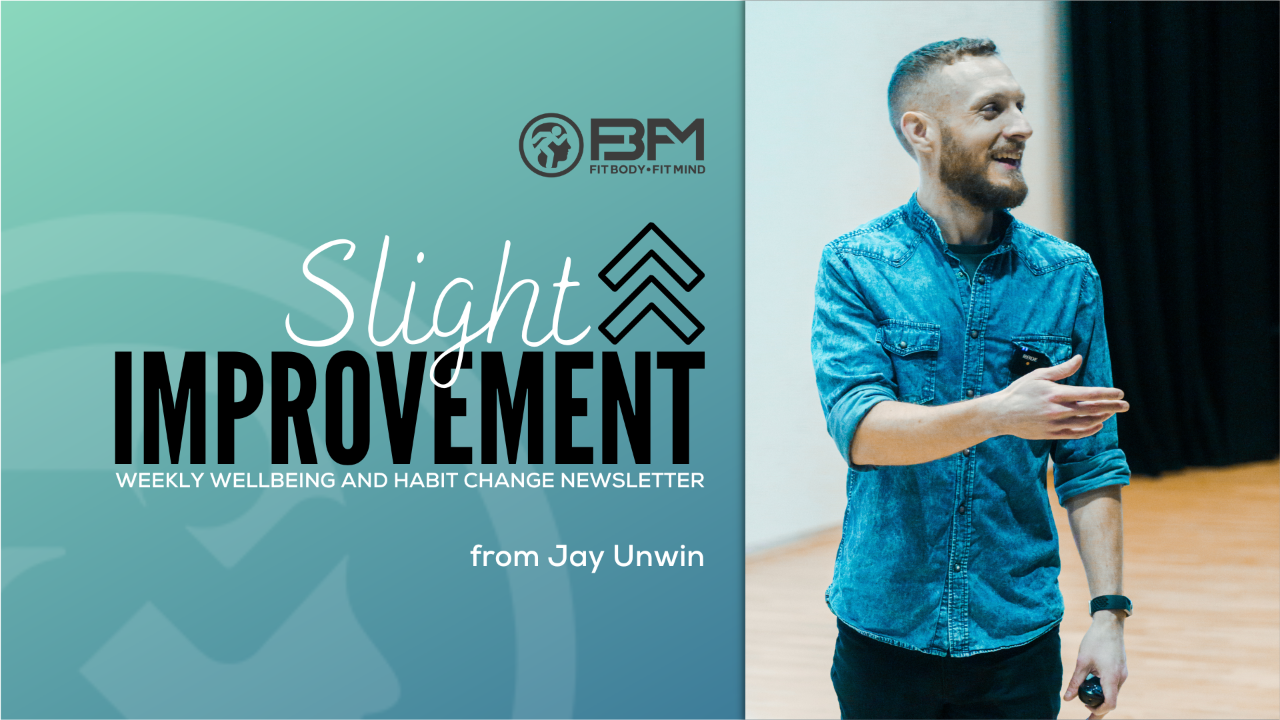
Life is never static.
As we go through our respective journeys, we grow and develop.
We change physically, mentally, emotionally...
Our environment changes, our families change, our friends change, our work changes.
So why do we attempt to keep our fitness and wellbeing goals the same?
You won't be alone if at least some of your health and fitness goals are rooted in reclaiming a past sense of yourself.
Huge swathes of fitness marketing revolve around youthfulness, either in appearance or performance.
Getting back your pre-pregnancy body.
Being as athletic as you were at 20.
Tightening and toning up, regaining what you thought was lost forever.
Now, don't get me wrong, good fitness and wellbeing habits do have anti-aging (or even aging-reversal) effects - resistance training (such as lifting weights) for example can have some really tremendous results on a cellular level.
But is it detrimental to have this goal of time-travel at the core of our fitness activities?
Because, let's be...
SI 002: Your habit audit
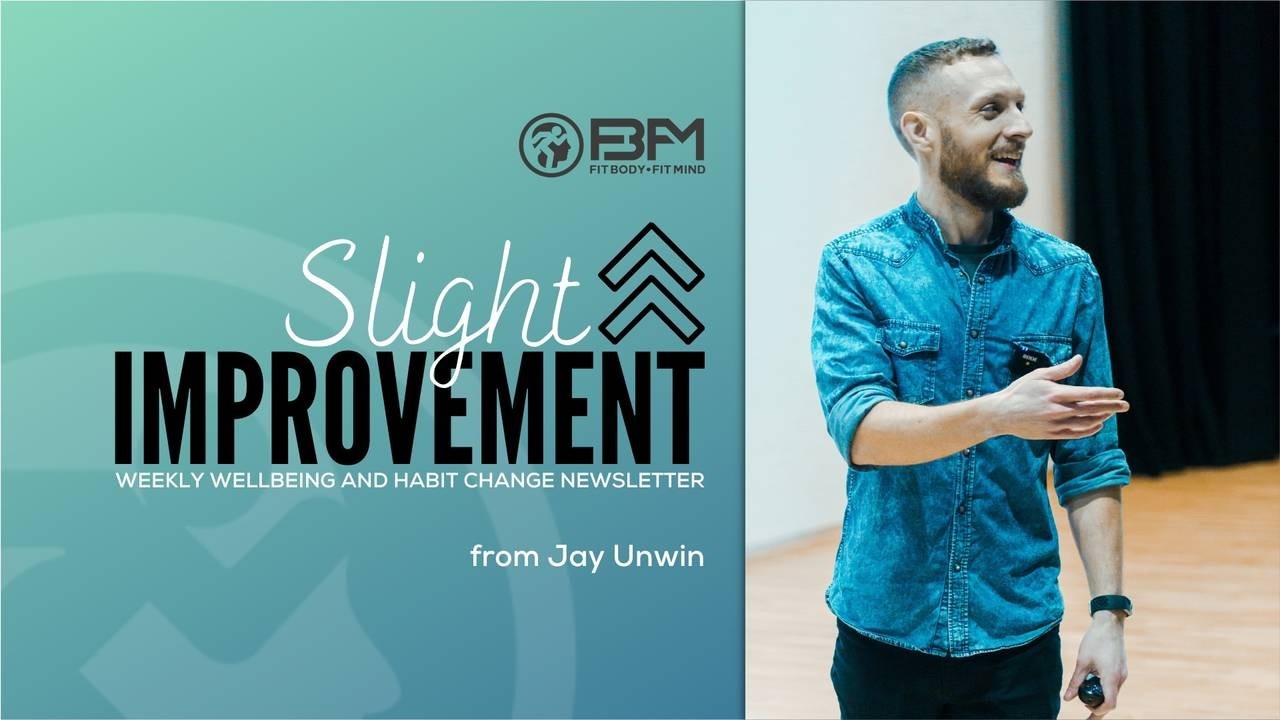
Good morning!
Hey check me out, I’ve done two weeks in a row, GO ME
Last week I wrote you a little message about setting the right kind of goals.
Goals which actually MEAN something to you.
This week I think it’s highly worthwhile to explain my concept of a ‘habit audit’
You see, it’s all well and good knowing what you want, and knowing where you are now in relation to those goals.
But without assessing your behaviours you can’t possibly know what changes to start making.
Most people jump in with activities they see other people doing, with no regard to whether it’s too much of a leap for them as an individual.
Does this ring any bells?
New Year’s Resolutions, anyone?
Instead of making blind changes, here’s what I recommend.
List all your daily behaviours under one or the other of the following headings:
- Habits which serve me.
- Habits which hold me...
How To Sustain Good Habits When You're Unwell
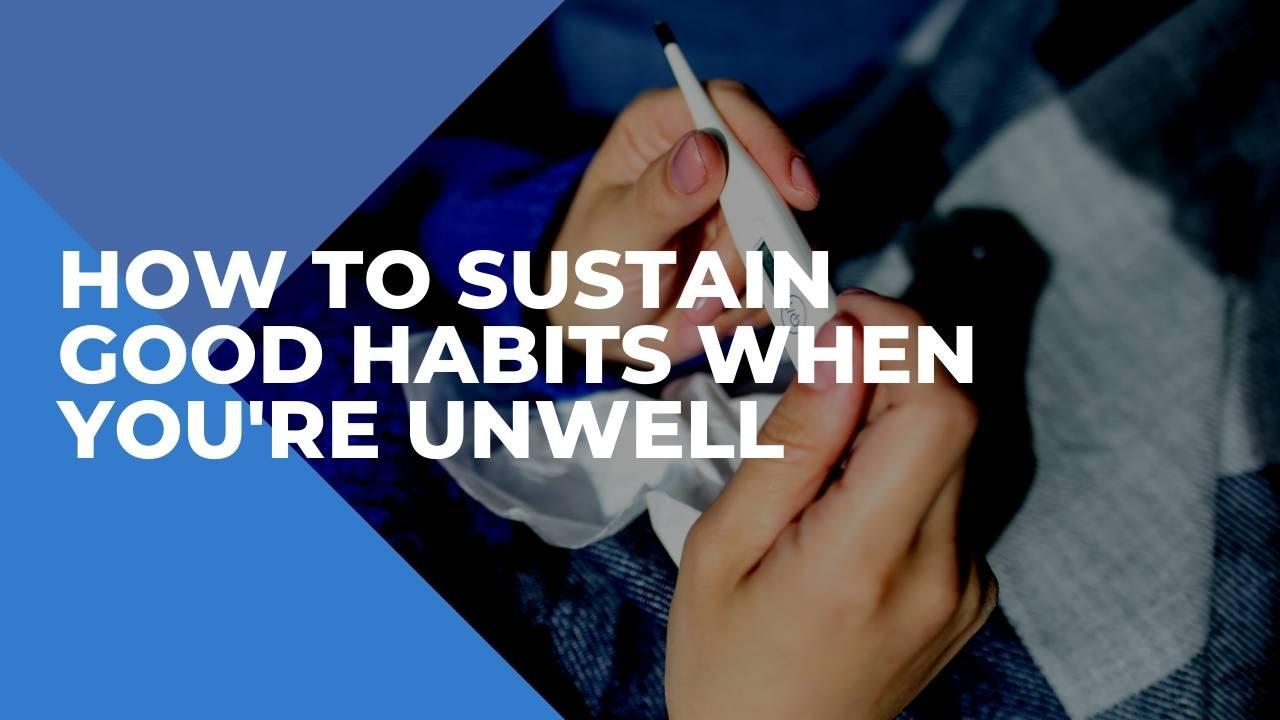
I'm writing this from a place of understanding.
Well, actually I'm writing it from my bed. But you get the idea.
I get ill a fair bit. Due to my medical history, my immune system is pretty shit. It's just the hand I've been dealt.
So with that, I know all too well what it's like to get set up with some awesome new habits, and then suddenly the energy is gone and I can barely get out of bed.
So yeah, I get it.
If this sounds familiar, then I have three things to say which will (hopefully) help you.
1. Allow it
To be quite frank, getting unwell is pretty standard. Everyone has physical and mental health, and unless you're Bruce Willis in Unbreakable you're probably going to go through periods where that health isn't quite where you'd like it to be.
So yeah, allow it.
Accept that you're not firing on all cylinders, and accept that some things are probably going to slip.
2. Keep some going
You're unlikely to be able to keep ALL your habits going while you're unwell, so don't...
Prevention vs. Cure

There are many things I dislike about the fitness industry.
One thing I do love, however, is that the overall philosophy is one of prevention rather than cure. Yes, there are people doing injury rehab and other remedial work, but the vast majority of this industry is (despite its flaws) focused on preventing poor health rather than fixing it.
I strongly believe that, where possible, prevention is better than cure. If we can avoid becoming unwell in the first place, or perhaps just less unwell, then surely that’s got to be better than clawing our way back after the fact?
I don’t believe for one second that medical intervention doesn’t have a place. I don’t believe that lifestyle can fix EVERYTHING. That would be naive at best. I don’t believe that smallpox would have disappeared if we had just eaten more fermented foods. I don’t believe that we can cure cancer with apple cider vinegar.
I also don’t believe that medical intervention is the...

